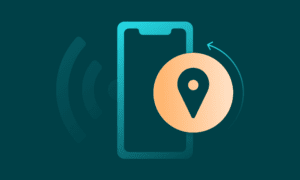As the digital landscape continues to expand, it becomes increasingly important to protect yourself and your devices from a wide array of online threats. One such threat is the potential loss of your data, privacy, or anonymity when browsing the web without a secure proxy. In this article, we will explore the concept of residential proxies, how they work, their numerous benefits, and various applications.
What is a Residential Proxy?
Theres no doubt youve heard of a proxy server; a residential proxy is a type of IP proxy that uses legitimate Internet Service Provider (ISP) assigned IP addresses. These IP addresses are assigned to real residential addresses, which makes them less likely to be blocked or blacklisted by websites and other online services.
How Residential Proxies Work
When using a residential proxy, your devices internet traffic is routed through an intermediary server (the proxy server) before reaching its intended destination. As a result, the destination website sees the IP address of the proxy server instead of your actual IP address.
The benefits of this process are twofold: first, it masks your true IP address and location, which can help maintain anonymity, protect user privacy, and bypass geographical restrictions. Second, it diminishes the risk of your IP address being flagged or blacklisted for excessive automated requests.
Dedicated vs. Shared Proxies
There are two types of residential proxies: dedicated and shared.
1. With a dedicated residential proxy, you have exclusive access to a specific IP address. This type of proxy is ideal for users who need advanced control over their connection, as it allows for a high level of customization and security.
2. Shared residential proxies, on the other hand, allow multiple users to access a pool of IP addresses simultaneously. While pricing is often more affordable than dedicated options, sharing IP addresses can lead to slower speeds and reduced control for each user.
Residential Proxies vs. Data Center Proxies
Residential proxies and data center proxies are the two most commonly used types of proxies. While both serve the basic purpose of masking your IP address, they differ significantly in terms of their origin and security level.
– Residential proxies come from ISPs and are seen as “real” addresses. They are generally considered safer and more reliable, as they pose a lower risk of being blocked or blacklisted.
– Data center proxies come from server providers, not ISPs, and can be quickly identified by websites as non-residential IPs. This may lead to their being flagged or blocked, especially when used for web scraping, automated tasks, or bypassing geo-restrictions.
Benefits of Using Proxies
Anonymity & Privacy
Due to the use of legitimate residential IP addresses, they provide you with a higher level of anonymity and privacy when browsing the Internet or performing online tasks.
Enhanced Security
By routing your internet traffic through a proxy server, a residential one offers increased security from potential hackers, data breaches, and other cyber threats.
Bypass Geo-Restrictions
Using a proxy can help bypass geographical restrictions imposed by some websites and streaming services, allowing you to access content that may otherwise be off-limits.
Web Scraping & Automation
Residential proxies are ideal for web scraping or running automated tasks, as they minimize the risk of IP bans or blacklisting due to their perceived legitimacy.
Load Balancing
Using a residential proxy setup with multiple IP addresses can help optimize load balancing to ensure smoother and faster browser performance.
Applications of Residential Proxies
Marketing Research
Residential proxies enable marketers to perform in-depth research on competitors and conduct price comparisons without the risk of being detected or blocked.
Social Media Management
Residential proxies provide valuable assistance in managing multiple accounts across various platforms while compromising neither anonymity nor performance.
Ad Verification
Ad verification companies use these proxies to prevent fraud and ensure that advertisements are displayed to the correct target audience.
SEO Monitoring
With residential proxies, SEO professionals can access global search engines, monitor SERP rankings, and analyze keyword performance from multiple locations.
Sneaker and Ticket Purchasing
Residential proxies make it possible to purchase limited edition products, such as sneakers or concert tickets, by bypassing website restrictions and allowing for faster, simultaneous transactions.
Choosing the Right Provider
When seeking a provider, its crucial to consider factors such as their IP pool size, server locations, connection speeds, and pricing plans. Researching and comparing various providers will help you find the best solution for your needs.
Conclusion
Residential proxies provide numerous benefits and applications to users seeking anonymity, privacy, and a higher level of online security. By understanding how they work and the advantages they offer, you can make an informed decision about whether a residential proxy is the optimal solution for your specific needs.



































